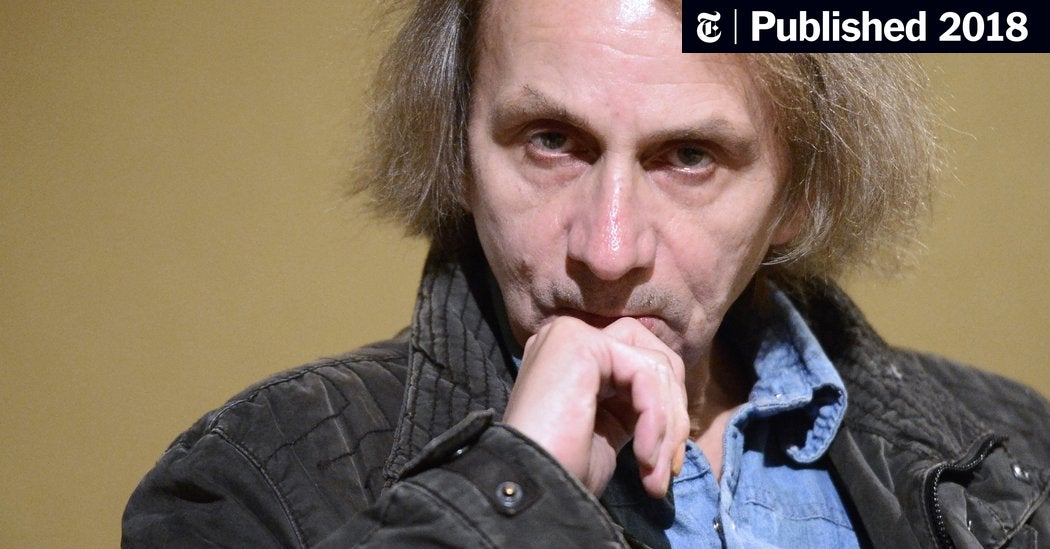Blackpillapologist
The chad of unattractiveness
-
- Joined
- Sep 22, 2021
- Posts
- 1,825

A French Novelist Imagined Sexual Dystopia. Now It’s Arrived. (Published 2018)
Michel Houellebecq has eerily foreseen some of the worst social developments of our time.
Article is behind paywall, disable javascript to view. A TLDR summary is given:
...After his death, Rodger became a hero to other incels, several other young male killers, including Nikolas Cruz, who murdered 17 people at Marjory Stoneman Douglas High School in Parkland, Fla., in February, and William Atchison, who fatally shot two people and then himself at Aztec High School in Aztec, N.M., last year, appear to have admired and identified with Rodger.
In May, Jordan Peterson told The New York Times that “enforced monogamy” might be the only way to pacify their rage. Along with some other social conservatives, Peterson sympathizes with the notion that the sexual revolution, like the free-market revolution, has created classes of winners and losers, and that the losers have a legitimate grievance. “No one cares about the men who fail,” Peterson observed.
To any reader of the French writer Michel Houellebecq, this lament will sound eerily familiar. For the last 25 years, in novel after novel, Houellebecq has advanced a similar critique of contemporary sexual mores. And while Houellebecq has always been a polarizing figure, he has turned out to be a writer of unusual prescience. At a time when literature is increasingly marginalized in public life, he offers a striking reminder that novelists can provide insights about society that pundits and experts miss.
Houellebecq understood what it meant to be an incel long before the term became common.
The core of Houellebecq’s case against modern sexuality can already be found in his first novel, “Extension du Domaine de la Lutte”. The book’s narrator set the pattern for all of Houellebecq’s antiheroes: depressed, misanthropic men who, precisely because they cannot achieve romantic or sexual satisfaction, believe that sex is the most important thing in life. “Lacking in looks as well as personal charm, subject to frequent bouts of depression, I don’t in the least correspond to what women are usually looking for in a man,” the narrator confesses. Houellebecq has always seen himself as speaking for and to such men; women in his novels almost exclusively as their tormentors or saviors.
The sexual revolution of the 1960s, widely seen as a liberation movement, is better understood as the intrusion of capitalist values into the previously sacrosanct realm of intimate life. “Just like unrestrained economic liberalism … sexual liberalism produces phenomena of absolute pauperization,” he writes. “Some men make love every day; others five or six times in their life, or never.” The latter group — the losers — are represented by Raphaël Tisserand, who is so repulsive that he has never had sex with a woman, despite strenuous efforts to seduce one. He is a proto-incel, and his story builds to a disturbing scene in which the narrator urges him to murder a woman who has rejected him.
They are victims of generational trends that Houellebecq believes have plunged the West, particularly France, into incurable misery. Houellebecq’s second (and best) book, “The Elementary Particles,” reiterates his case against “sexual liberalism,” while adding a host of new culprits, from New Age spirituality and women’s magazines to social atomization and the decline of Christianity. “In the midst of the suicide of the West, it was clear they had no chance,” he writes of the characters in the novel, in what could be a slogan for all his fiction.
This sounds like a familiar kind of reactionary pessimism. But it is not quite accurate to call Houellebecq a reactionary, since he does not believe that it is possible to return to the sexual regimes of the past — in particular, arranged marriages — which he suggests did a better job of providing mates for undesirable men. In his novel “Submission,” Houellebecq toys with the idea that such a return could be accomplished by a mass conversion to Islam. After all, a society in which women submit to men while men submit to the divine can be seen as Houellebecq’s version of utopia. “Screw autonomy,” his narrator muses; autonomy is the root of alienation.
In his more serious moods — as in “The Elementary Particles” or “The Possibility of an Island” — Houellebecq imagines a more radical solution to the problem of sexual inequality. Instead of going backward to an earlier stage of humanity, these books push forward to a posthuman future in which human beings are replaced by a species that has abolished sexual reproduction, and so is immune to the torments of desire and loneliness. This perfected species looks back on us as a “vile, unhappy race, barely different from the apes.” Houellebecq likes to cast his novels as the testimony of the present before the court of the future: To understand why we were so wretched, posterity will have to read him.
And it is in this sense, as diagnosis and evidence, that Houellebecq’s novels are now more urgent than ever. The portrayal of hatefulness is part of fiction’s mandate to give a truthful account of the world; there are characters in Dostoyevsky as revolting as anyone in Houellebecq (perhaps more so, because Dostoyevsky is a better writer). Houellebecq is able to give such a convincing portrait of incel-thinking because at some level he seems to share its core assumption, representing sex as something that women owe men.





